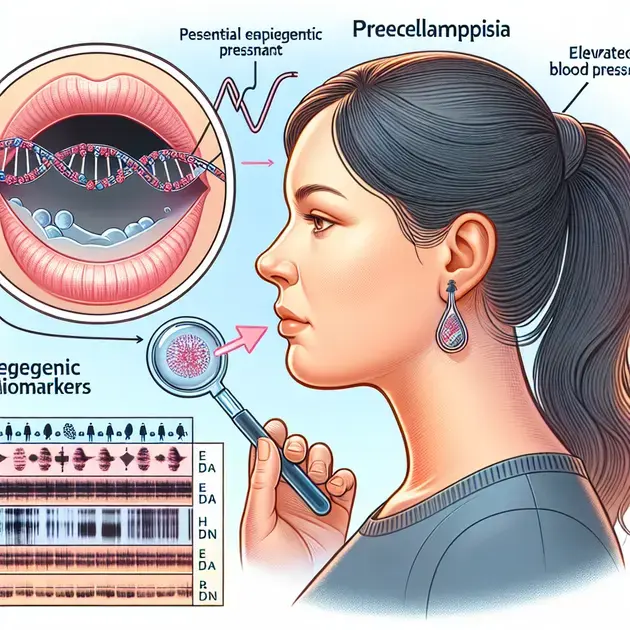This underscores the urgent need for a more efficient and accurate method of identification.
The study focused on analyzing cheek swabs taken from pregnant women and identified potential epigenetic markers for preeclampsia. Epigenetic changes refer to modifications in gene activity and expression that do not involve alterations to the underlying DNA sequence. These changes can be influenced by various factors, including environmental conditions.
The researchers found a correlation between specific epigenetic markers in the cheek swabs and the presence of preeclampsia. This suggests that these markers may serve as potential indicators or predictors of the condition. However, it is important to note that further validation through clinical trials is necessary to confirm these preliminary findings.
If these findings are validated, the development of a simple test to identify preeclampsia earlier in pregnancy could have significant implications for maternal and fetal health. Early detection would enable healthcare providers to closely monitor and manage the condition, potentially preventing severe complications and ensuring appropriate interventions are in place.
The introduction of a non-invasive and easily accessible test could revolutionize prenatal care and improve outcomes for both mother and baby. Screening pregnant women for preeclampsia using cheek swabs could become a routine part of prenatal care, allowing for timely interventions and better management of the condition.
In conclusion, the analysis of cheek swabs from pregnant women has provided initial evidence of a potential epigenetic biomarker for preeclampsia. While further research is necessary to validate these findings, the study offers hope for the development of a simple and non-invasive test to identify preeclampsia earlier in pregnancy. This advancement could greatly improve the management and treatment of the condition, ultimately leading to better outcomes for both mothers and their babies.
